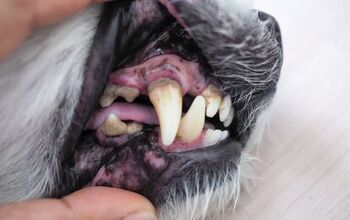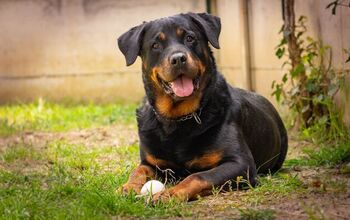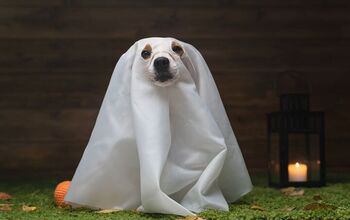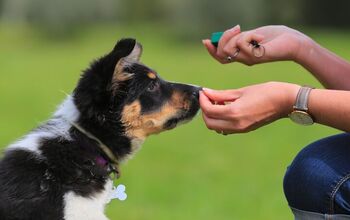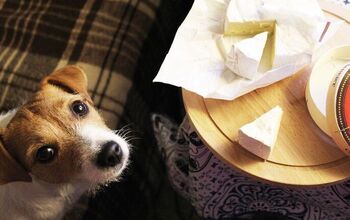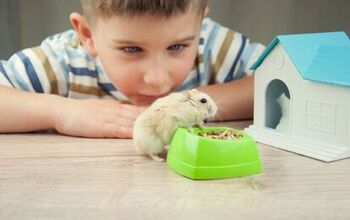Puppy Dog Eyes Didn't Evolve Just for Humans, Study Finds

Every doggy parent will agree that resisting puppy dog eyes is virtually impossible. Until recently, researchers have believed that dogs developed this adorable and deeply manipulative facial expression because of domestication. But a new study debunks this theory.
Previous research studies, published in 2019 and 2022, surmised that dogs evolved new muscles around their eyes to improve their communication with humans.
However, a new study into African wild dogs challenges this theory, finding that other canine species have similar muscle adaptations that make them capable of pulling puppy dog eye expressions.
The 2019 study found that domestic dogs had more developed specialized muscles around their eyes, compared to wolves, which allowed them to make a wider range of facial expressions. Researchers theorized that these muscles evolved as dogs began living with humans so they could mimic human expressions and therefore encourage their companions to take better care of them.
“We were curious to see, is that true. Or do these muscles also exist in other highly social canids?” said Heather Smith, the lead author of the new study. Her findings were published in the journal The Anatomical Record.
To see if other canines have the same puppy dog eye muscles as domestic dogs, scientists dissected a dead African wild dog that was donated by a zoo. To everyone’s surprise, African wild dogs had the same muscles and they were just as developed as those in domestic dogs. Additionally, researchers discovered that African wild dogs also possess facial muscles that support the movement of their characteristically large ears.
“This morphology suggests that ocular facial expressions contribute to within-pack communication in wild dogs and are not unique to domestic dogs,” researchers wrote in the study.
“African wild dogs have the same well-developed facial muscles that generate the puppy dog eye expression in domestic dogs,” said Smith. “So it kind of debunks the idea that domestic dogs are the only canids that have this, and that they evolved specifically for us.”
African wild dogs communicate mostly vocally, but their well-developed facial muscles suggest that these canines use other, still unknown, non-vocal forms of communication within the pack. Researchers speculate that the well-developed facial muscles used for puppy dog eyes, help African wild dogs to silently communicate and coordinate while hunting.
Previous studies into puppy dog eyes found that domestic dogs have more developed eye muscles around their eyes than wolves. Now, researchers believe that’s because wolves rely less on visual communication while hunting than domestic dogs and African wild dogs.
Wolves hunt in many different landscapes, including in mountains and dense forests. In these conditions, each wolf is more likely to be hidden by a rock or a tree when stalking prey. As a result, wolves may have evolved to communicate using more complex vocalizations and scent signs rather than visual cues.
Although puppy dog eyes didn’t evolve just for humans, this facial expression has helped strengthen the bond we have with our pups. Those tiny facial muscles flex, creating an infamously cute, pleading expression.
Resisting puppy dog eyes is extremely hard, and dogs know it! Every time your pooch wants an extra treat, more time in the yard, or more food, they will look at you with those big pleading eyes and manipulate you into giving them exactly what they want.
But, at the end of the day, there’s nothing to complain about. You love your pooch and will give them anything they want, puppy dog eyes or not.
Join the PetGuide community. Get the latest pet news and product recommendations by subscribing to our newsletter here.

Nevena is a freelance writer and a proud mom of Teo, a 17-year-old poodle, and Bob, a rescued grey tabby cat. Since childhood, she had a habit of picking up strays and bringing them home (luckily, her parents didn't know how to say NO). When she's not writing for her fellow pet parents, Nevena can be found watching Teo sleep. To her defense, that's not as creepy as it sounds!
More by Nevena Nacic








